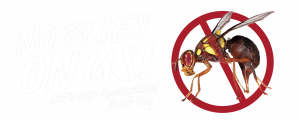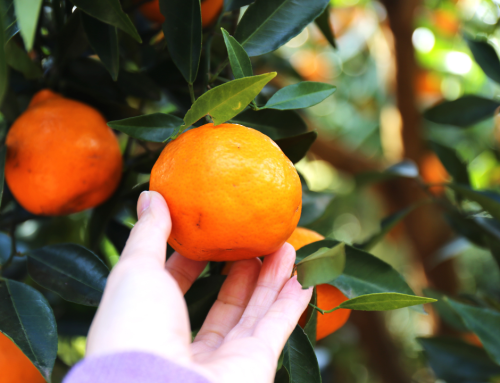The nation’s orchard
The Murray Valley is the nation’s largest producer of stone fruit, while the Goulburn Valley produces nearly 90 per cent of the nation’s pears and 48 per cent of its apples.
Australian horticultural exports have increased 27 per cent on the 2017- 2018 financial year to reach almost $2.8 billion for the first time. Based on current projections, the value of horticulture is expected to rise by 33 per cent by 2030. If we control fruit fly, our exports, jobs and lifestyle will prosper.
January 2020 outlook
There are now 395 Queensland Fruit Fly (QFF) traps in the Goulburn Murray Valley (GMV) which are checked weekly. If annual patterns follow trends observed since trapping commenced in the GMV in 2012, QFF trap capture rates will continue to increase into January 2020. If daily maximum temperatures remain high, and rainfall low, QFF numbers will not rise as quickly as they would under more equable conditions – but they will rise. However, this increase may well be lower than previous years due to area wide management activities carried out in the region.
Hot spots
It is in fact only a few traps on the GMV trapping grid that are major contributors to this increase. These locations could be described as ‘hot spots’ from which new populations would, if not managed, spread further a field later in the season. Only 85 of the traps (21 per cent of traps) caught more than 1 QFF in that month and only 11 sites (just under 3 per cent of traps) trapped just fewer than 50 per cent of QFF from the region. These sites (where more than 10 QFF were trapped from mid-November to mid-December 2019) are all in urban situations:
- 2 sites in Barooga
- 1 site in Cobram
- 3 sites in Echuca
- 2 sites in Kyabram
- 1 site in Mooroopna
- 1 site in Numurkah
- 1 site in Yarrawonga
Area Wide Management
Project Field Officers are currently deployed to assist landholders in managing these hot spots, checking project traps and locating unmanaged fruit fly host trees and plants. The public awareness and engagement campaign is ongoing and continues to gain traction through the support of Lions International. Unmanaged host trees and plants are currently being removed in high numbers from private and public lands as well as non-productive orchards. The airborne release of sterile QFF trial in Cobram is continuing and progressing well.




